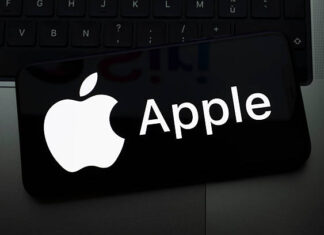When you purchase through links on our site, we may earn an affiliate commission. This doesn’t affect our editorial independence.
When the UK’s NatWest Bank announced it was shutting down 31 branches, part of a bigger plan to close over 100 this year, it wasn’t just big news in the UK alone. It also got people talking in Nigeria’s banking and regulatory circles. It has sparked a significant discussion about whether physical banks are on their way out. And more importantly, many wonder if Nigeria is ready for a digital banking future with far fewer or no branches.
For NatWest, the answer is pretty straightforward. Over 80% of their customers are now banking online, and most new accounts are opened digitally, so it simply doesn’t make sense for them to keep so many physical locations open. They’re reaching their customers in new ways like shared “banking hubs,” community pop-ups, and collaboration with the Post Office to ensure customers can still get in-person help if they need it.
This has become the trend worldwide. The rise of digital banking is forcing banks everywhere, including in Nigeria, to re-strategise, aiming for a future with fewer or no branches.
Fewer Branches, More Apps
New technology, better mobile access, and changing habits are the main drivers of this shift, especially in big cities.

A similar pattern is unfolding in Nigeria’s banking sector. While banks haven’t made massive announcements about mass closures, the signs are there. They’re opening fewer new branches and instead pouring money into digital upgrades. They are rolling out better mobile apps, A.I-powered customer service, and setting up more agency banking networks.
Big players like GTBank, UBA, Zenith, and Access have built massive digital ecosystems. Their apps now allow users to do everything, from opening a virtual account to getting a loan or using biometric ID checks. The future of banking without physical branches is approaching.
The Central Bank’s Digital Push
Nigeria’s central bank (the CBN) is aware of this change. It has made digital banking a cornerstone of its plan to attract more people to the financial system.
From giving licenses to payment service banks like Opay and Palmpay to launching the eNaira and pushing for a cashless economy, the CBN is preparing for a less physical, more digital banking world. Their policies encourage banks to expand their reach through digital and agent networks instead of building expensive new branches. But, of course, this shift isn’t without its risks.
The Digital Divide
While young Nigerians in cities have embraced digital banking, millions in rural areas remain offline. According to a 2023 survey, over 38 million Nigerian adults either have no access to banking or rely on informal services.
For these people, closing physical bank branches without reliable digital alternatives could make it even harder for them to access financial services. Unlike the UK, where stable internet and postal services are a given, Nigeria’s infrastructure is still a bit frail.
To deal with this, the CBN is pushing banks to set up agent networks, shared service centres, and run campaigns to teach people about digital finance. They want to make sure no one gets left behind.
Nigerian Banks Are Quietly Adapting
Many Nigerian banks are already making moves, just a bit more quietly than NatWest. Tier-1 banks are phasing out branches in expensive urban areas. They are replacing them with mobile banking units, self-service kiosks, and agency banking points.
Access Bank, for example, now has over 200,000 agents across Nigeria. First Bank has its “FirstMonie Agents” to reach more people in rural communities.
Also, Fintech companies like Kuda, Moniepoint, and Fairmoney are thriving in Nigeria. Their success is pushing traditional banks to innovate faster than ever before.
Check Out Our Previous Posts:
Choosing the Right Device for Your Reading Habits
Nigerian Startup Launches Threndx, a Revolutionary Social Media App
What About Jobs?
One tricky part of this whole transition is what happens to bank employees. In the UK, closing branches has led to job cuts. While Nigerian banks haven’t announced mass layoffs yet, the implications in terms of job losses is real.

Instead of just letting people go, banks are focusing on retraining staff for new roles in digital support, data analysis, and back-end tech management. The CBN has also clarified that banks must balance innovation with job security, signalling that people are still a key part of the banking system, even as it goes digital.
A Model Worth Exploring: Banking Hubs
One cool idea from the UK that Nigeria could borrow is the “Banking Hub.” These are shared spaces where multiple banks can offer basic services like cash withdrawals and deposits under one roof. They’re managed by a third party and are great for communities where all the individual bank branches have disappeared.
Nigeria could easily adopt this model. Instead of each bank building new branches in rural areas, they could team up to create shared facilities. It can be done like how mobile phone companies share cell towers. These hubs could be funded by the banks with help from the CBN. They could even include things like agency banking and eNaira services.
The NatWest closures show that physical branches are becoming a thing of the past, and Nigeria is clearly on that path.
However, the CBN and Nigerian banks must guide the digital transformation towards inclusiveness. It must not exclude the people it is supposed to help. Every new app and chatbot must be backed up by smart policy, better rural infrastructure, and digital education.
NatWest’s actions worldwide send a clear message. The future is digital, and banks must adopt solutions tailored for Nigeria’s unique challenges.










